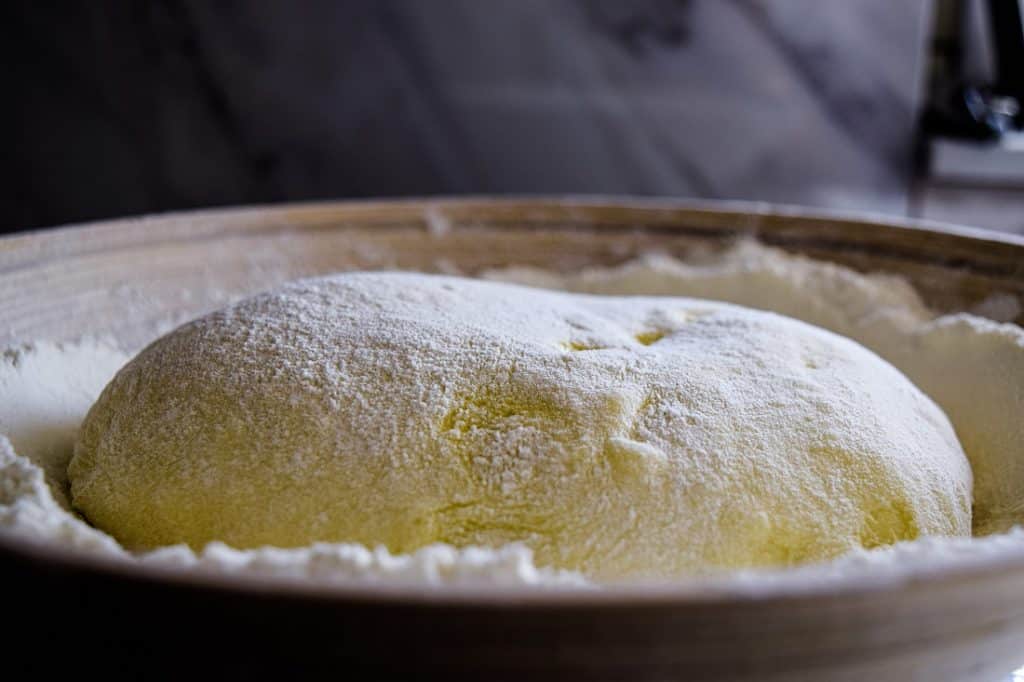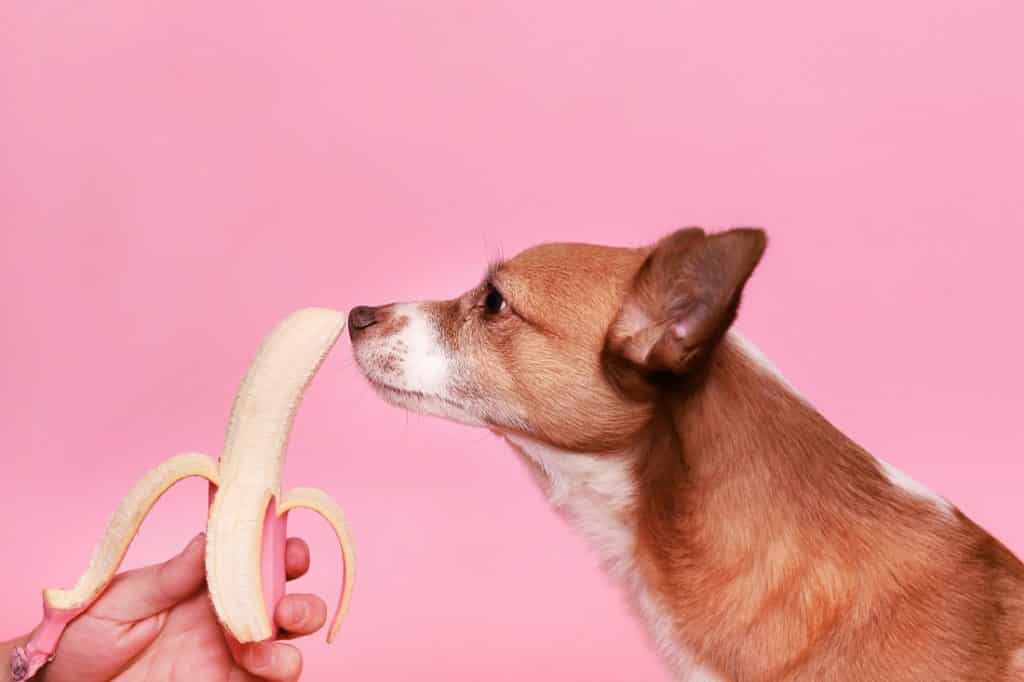Dog Lifestyle
10 human foods your dog can eat (and 10 they can’t!)
If you’re a dog owner, chances are you’ve experienced that moment of panic as you catch your dog chomping down on some human food when your head was turned. You grab your phone and frantically google “Can dogs eat…” with one hand, while trying to remove the offending snack with the other.
Whether it’s as a special treat; to add some extra nutrients to their diet; or simply for knowing when not to panic if your dog has managed to get their paws on some human food, take a look at our list of ten foods your dog can eat, and ten they definitely shouldn’t!
Human foods your dog can eat
Eggs
Cooked eggs are perfectly safe for dogs, and whether scrambled or hard boiled, they provide a great source of beneficial nutrients for your canine! The egg yolk is filled with fatty acids and vitamins; the egg white is rich in amino acids; and the egg shell packs a punch when it comes to minerals like calcium, magnesium and iron to name a few.
With around 60 – 70 calories per egg, they should be fed in moderation; and you’ll want to avoid feeding raw eggs to your dog, as they come with the risk of salmonella.
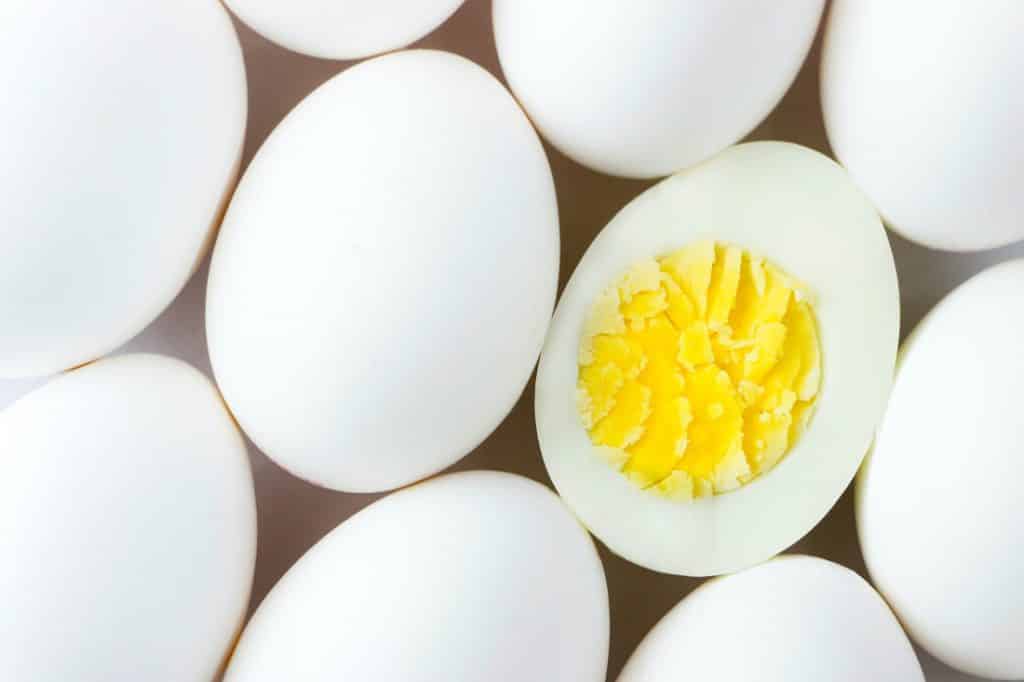
Bananas
Packed with potassium, fibre, magnesium and vitamins, bananas are a great dog-friendly treat for your four legged friend. Mashed banana can be added to your dog’s food, while sliced banana can be offered as a tasty snack – although due to their high sugar content, they are best fed in moderation.
Tip: freeze some banana slices, or pop a kong filled with mashed banana in the freezer, for a great summertime treat for your dog.
Carrots
Nutritious and delicious, cooked and raw carrot is safe to feed to your dog – and provides a whole host of health benefits too! Their low calorie content means your dog can safely enjoy carrots a little more often than some other human foods.
Carrots are high in fibre, potassium and vitamin A; while they are also great for your dog’s dental health when chewed.
Tip: Frozen carrots make for great chews for dogs, and can even be a teething aid for puppies when supervised.
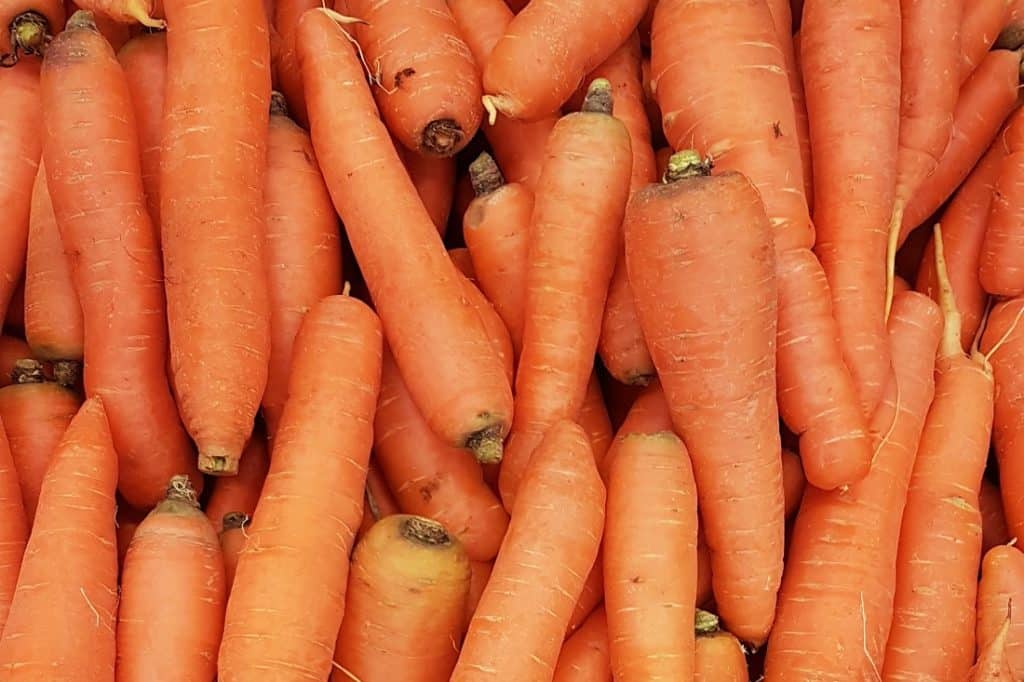
Peanut butter
A delicious snack for humans, peanut butter is also safe to feed to our dogs! Look for plain, unsalted peanut butter; and check that it doesn’t contain sugar or sweeteners, in particular xylitol (an ingredient sometimes found in peanut butter, which is toxic for dogs).
As well as being a tempting treat, peanut butter is also rich in vitamins E and B; healthy fats; and protein. However, it’s high calorie content means it is best fed in moderation.
Chicken
Often found as an ingredient in dog foods, cooked chicken is safe for dogs – and your canine companion will likely love being given this protein-rich human food! Avoid adding extra salt or flavouring in favour of plain cooked chicken, and make sure to remove it from the bone before feeding chicken to your dog.
Fish
Cooked fish, such as salmon, cod, and tuna, is a safe and enjoyable treat for dogs. Rich in omega-3 fatty acids, collagen, and protein, fish offers a whole host of health benefits for your dog’s immune system, as well as their skin and coat health; and tastes delicious to boot!
It’s important to note that not all fish are safe for dogs, so always double check first. Raw fish is also a no-no due to the risk of harmful parasites.
Blueberries
Seen as a superfood for humans, blueberries are also a fantastic nutritious treat for your dog. Low in calories, and high in fibre, antioxidants, minerals and vitamins, this delicious fruit can have a whole host of health benefits for your dogs; while studies have suggested that antioxidants can have a positive effect on canine brain function too.
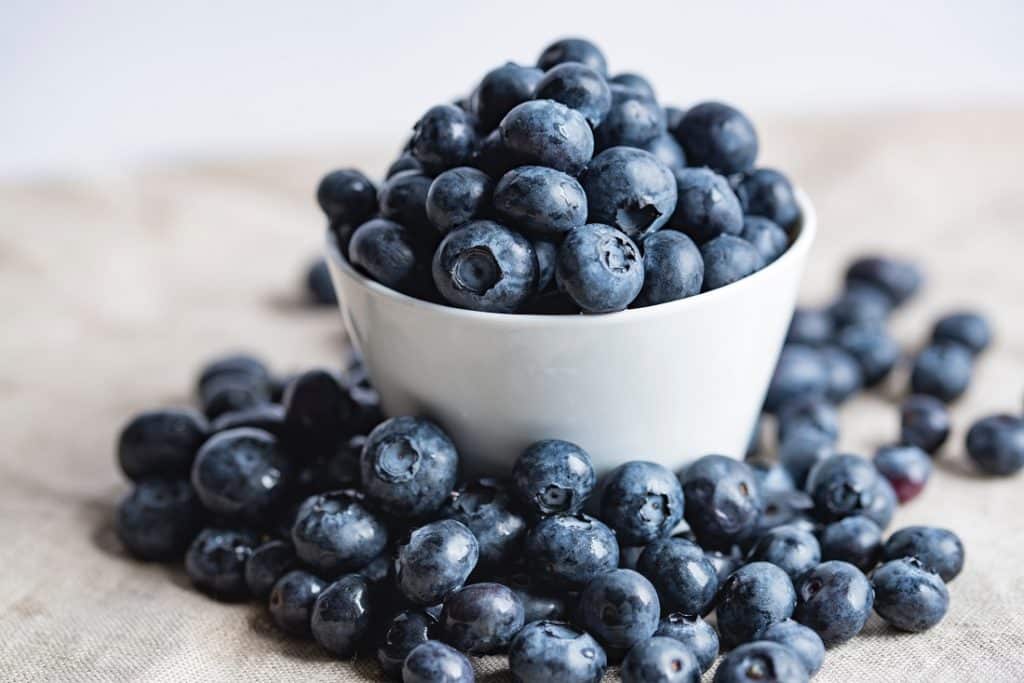
Cheese
If you’re wondering whether your dog can eat cheese, the answer is yes – in moderation! Cheese can be a great high value treat for dogs, however it can also cause digestive upsets due to its high lactose content – with some dogs being completely lactose intolerant. Feed cheese to your dog in small quantities, and keep an eye on any adverse reactions.
Honey
Often called the nectar of the gods, honey is popular with us humans for its sweet taste – but did you know it’s also safe for dogs to eat? With a high sugar content, honey should be fed to dogs in moderation and makes for a delicious canine treat.
Anecdotal evidence suggests honey can be beneficial to dogs suffering from allergies and skin conditions, however with little evidence to back this up, it is up to individual dog owners to try it out.
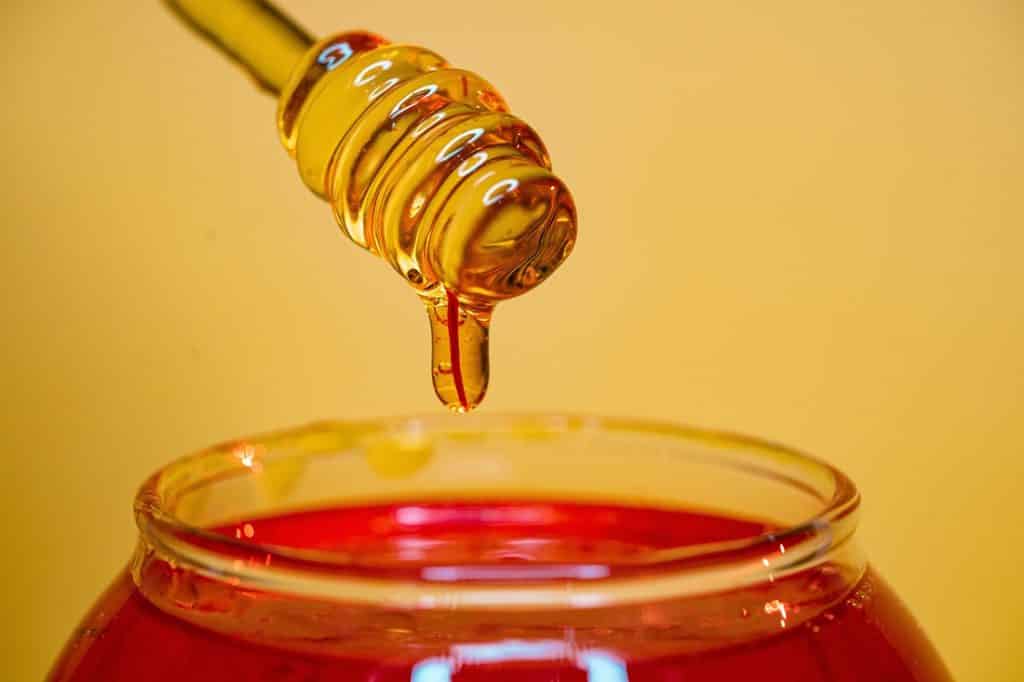
Popcorn
Love sharing a movie night with your best friend? Good news: you can share movie snacks too! Yep, popcorn is safe for dogs to eat – and even contains beneficial minerals like magnesium, zinc, and manganese. However, while you may prefer sweet or salted popcorn, your dog should stick to plain, air-popped popcorn (no matter how much they try to tell you otherwise!).
Make sure they only have fully popped kernels too, as partially or wholly unpopped kernels pose a choking hazard.
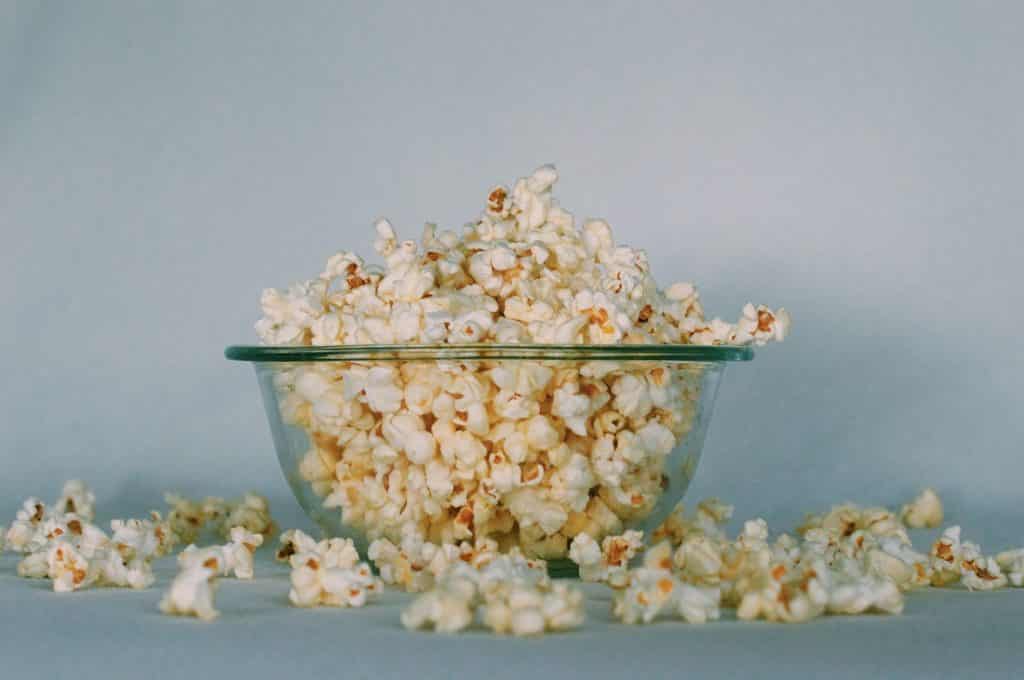
Human foods your dog can’t eat
Avocado
They may have become a staple in our human diets, however dogs should never eat avocados. This fashionable green fruit contains a substance called persin, which is extremely toxic to dogs and can cause diarrhea, vomiting, breathing difficulties, and even death.
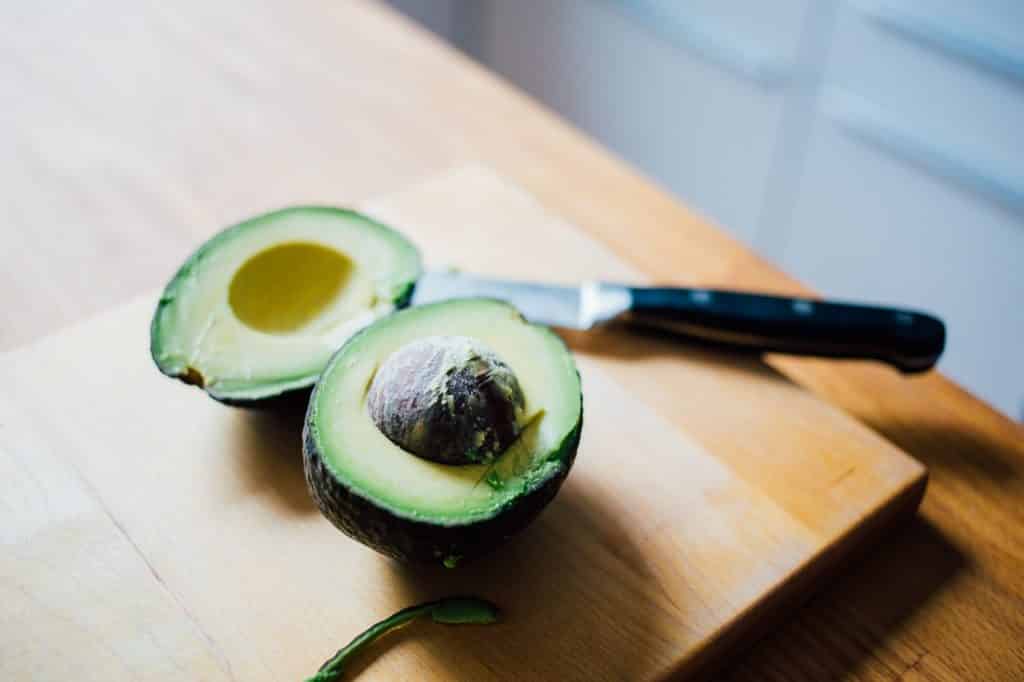
Grapes / raisins
Grapes and raisins are extremely toxic for dogs: they can cause kidney failure, which can be fatal. If you are worried that your dog may have eaten a grape or raisin, call your vet immediately.
Never give your dog whole grapes or raisins; or any foods which contain either of these toxic ingredients.
Chocolate & coffee
While us humans may rely on our caffeine fix in the morning, or be partial to a bar of chocolate, our canine friends are not in the same boat! Chocolate and caffeine are extremely toxic for dogs, and can cause symptoms including vomiting, diarrhea, seizures, and even death.
For a treat, dog-friendly chocolate alternatives are available – so your pooch can safely enjoy their Easter egg or Christmas chocolate.

Macadamia nuts
Macadamia nuts are a big no-no for dogs: they can cause muscle weakness, vomiting, swollen limbs, and lethargy in dogs, making them one to avoid for our four legged friends.
As a rule, nuts should be given with care: while not all nuts are toxic for dogs, many are; and whole nuts can pose a choking hazard.
Onion / garlic / chives
All a part of the onion family, garlic, onions and chives are toxic for dogs in any form – whether cooked or raw. When eaten, symptoms include gastrointestinal irritation, vomiting, diarrhea, and stomach pain; they can also impact your dog’s red blood cells, and even lead to anaemia.
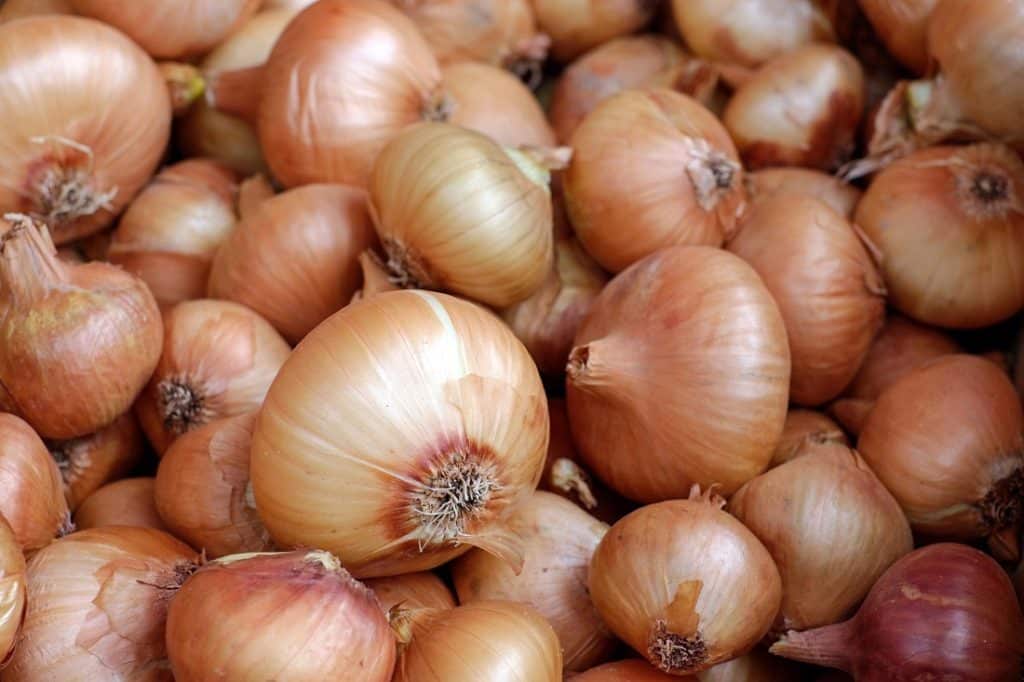
Xylitol
Xylitol is an artificial sweetener which can be found in a large number of human foods, including chewing gum; baked goods; low fat or sugar free products; and even some peanut butters (so always check the label before feeding peanut butter to your dog).
When ingested by dogs, xylitol is extremely harmful: it can cause hypoglycemia, liver failure, and even death.
Alcohol
Dogs should never drink alcohol in any shape or form. As well as intoxication, it can lead to symptoms including ethanol poisoning, coma, and central nervous system damage; and can even be fatal. Be conscious of products containing alcohol, too, such as mouthwash; and never leave these in reach of your dog.
Cinnamon
A spoonful of cinnamon powder eaten neat is unlikely to be enjoyable for anyone, and this applies to your dog too. While cinnamon isn’t toxic for dogs, it can cause them to choke and struggle to breathe if inhaled as a powder; and if your dog eats too much, it can cause irritation in their mouth as well as in their digestive system.

Cooked bones
Uncooked bones make for great dog chews, however cooked bones can be incredibly harmful and should be avoided. They can splinter, turning into sharp pieces which can cause gastrointestinal irritation, constipation, and in the worst cases, potentially fatal perforation of the gut.
Raw bread dough
Bread, while not exactly nutritious, is generally safe for dogs to eat – but raw bread dough is another story. This is because of the yeast in the dough, which continues to expand in your dog’s stomach, causing bloating which can lead to serious problems – including Gastric Dilation Volvulus (GDV), which can be fatal. If your dog eats raw bread dough, call your vet straight away.
